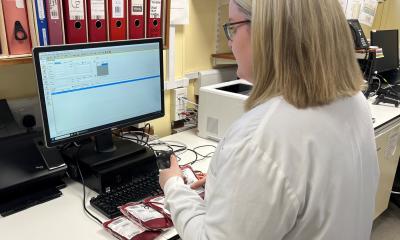The Netherlands roundup
For many years, in almost all Dutch hospitals, assistant-doctors have worked alone during evening, night and weekend shifts, when the responsible physicians are not available.
They man accident and emergency units, must learn for themselves on general wards and often face life and death questions.
According to a study from Groningen University, one in five assistant doctors have a burnout, while 40% of them suffer fatigue. The chances of a qualified specialist seeing a hospital patient are very small. Often the specialist is not in the hospital after ‘office hours’, or is on vacation, or at a congress, and therefore hard to reach. Many young hospital doctors see themselves as ‘production slaves’. They are also afraid to criticise specialists, for fear of losing their jobs.
The Dutch Order of Medical Specialists is ‘choked’ by these findings.
Blunders by assistant-doctors
Every year, doctors in training to specialise in medical fields make 1,000 mistakes – some with very serious consequences for patients. The study found that fatal mistakes in diagnosis were made in determining certain types of cancer. Also deadly mistakes were made in determining the right kind of medication. The result of a bad relationship between an assistant doctor and a qualified gynaecologist was the death of a baby.
According to the University of Groningen many of these mistakes could have been prevented: they are often the direct consequence of long working hours, high pressures and the too great responsibility of assistant doctors. In addition, assistant doctors not always well-taught by specialists.
Wireless on the Web in bed
Increasingly, Dutch hospitals are offering patients wireless internet access. At the IJsselland Hospital, in Capelle, for example, patients in bed can use their laptops to surf the net or send e-mails. It was simple for a hospital to facilitate this, because a number of systems were already available for the staff to work wirelessly. A simple adaptation gave patients the same option. However, patients are not allowed to use a GSM-telephone, because they interfere with medical equipment.
Seeking security
The majority of Dutch hospitals want to employ more security guards and install more video cameras, according to a survey of a large group of hospital managers. The managers said that, because of the cost of this, they would ask the government for funding. Presently, hospitals pay about ?50 million annually on their security, but they believe this is not enough to keep them safe.
An eye on private clinics
Following the death of a 20-year-old woman treated with liposuction, from 2008 the Dutch Inspection on Healthcare (IGZ) wants all private clinics to supply it with medical quality and performance data. The goal is to improve the checks on the private hospitals. Patients will be able to use the data to choose a clinic or hospital. Those that do not perform well are to be investigated.
01.05.2007





